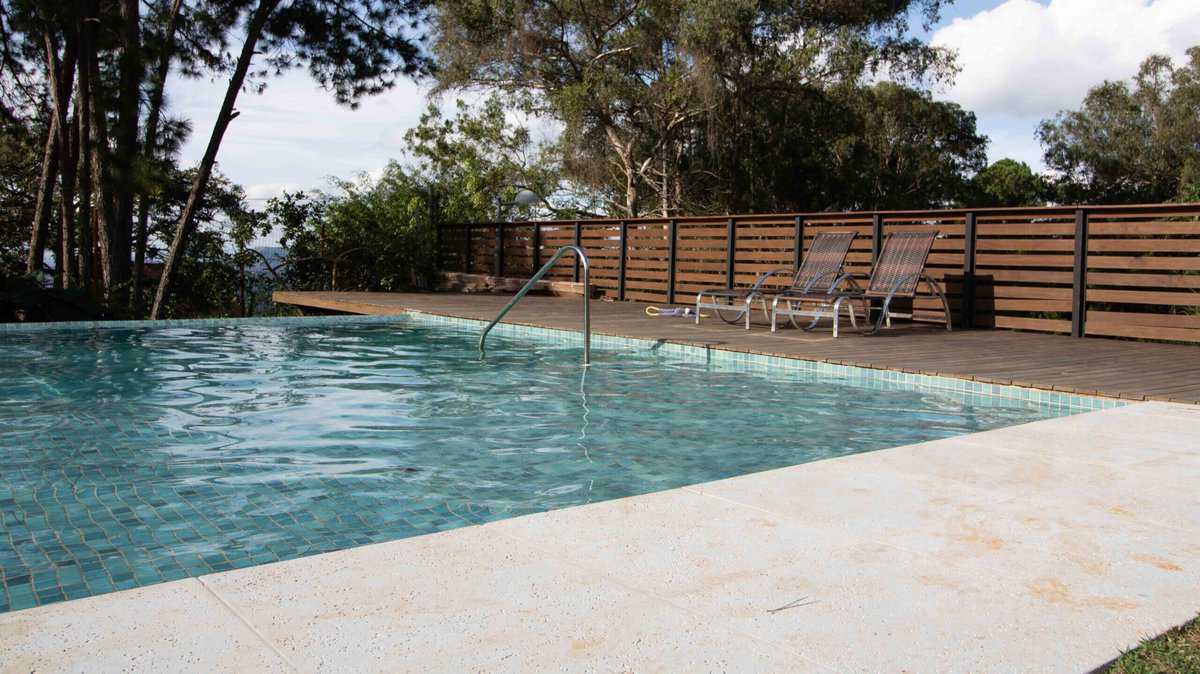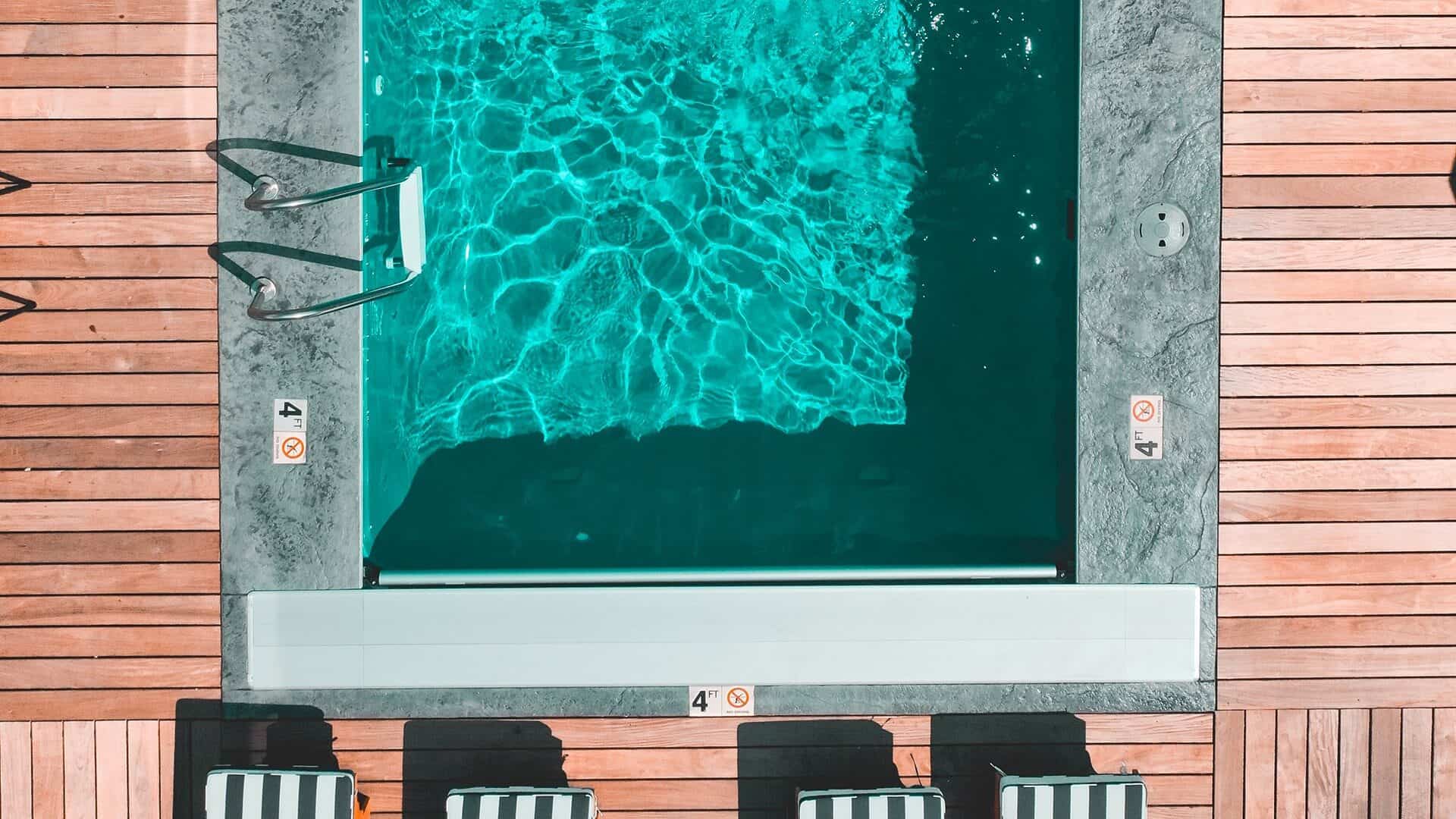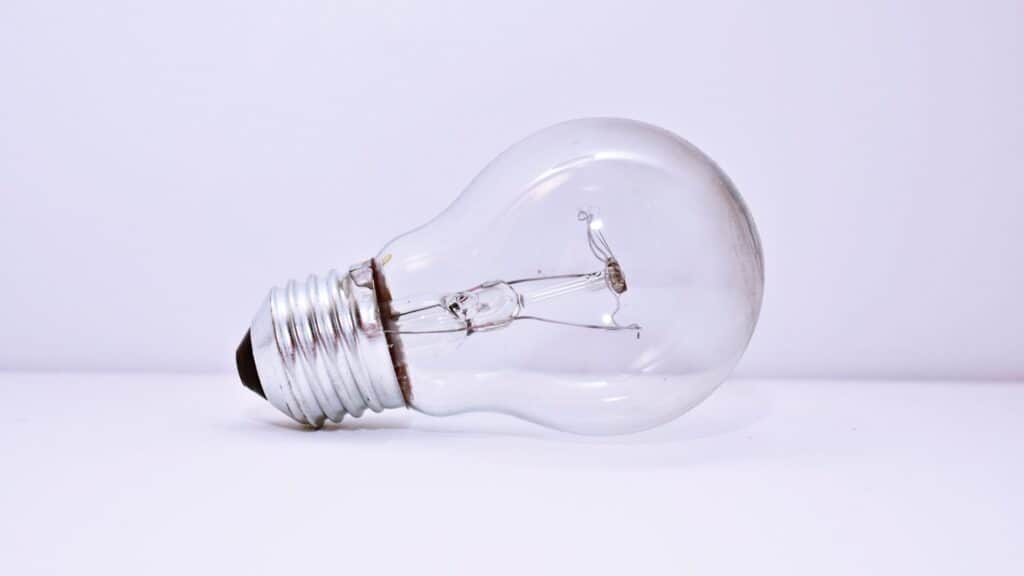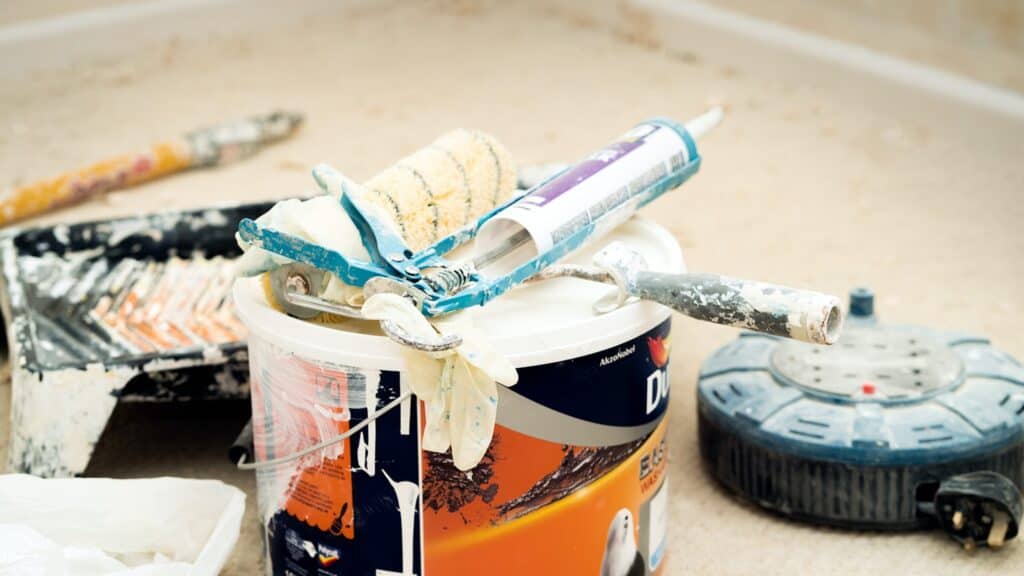Saltwater pools have become increasingly popular in recent years. There are a number of reasons for this, but one of the main ones is that saltwater pool systems are much easier to maintain than traditional chlorine pools. In this article, we will take a look at the pros and cons of owning and operating a saltwater pool. We will also compare saltwater pools to traditional chlorine pools, and discuss how much salt is needed in a saltwater pool and how much it costs to install and operate one.
Table of Contents
What are Saltwater Pools?
Saltwater pools are pools that are filled with salt water instead of fresh water. The salt is used to generate chlorine, which is then used to disinfect the pool. Saltwater pools are also sometimes referred to as saline pools or brine pools.
These pools have a number of advantages over traditional chlorine pools. One of the main ones is that they are much easier to maintain. In a saltwater pool, you only need to add salt to the water, and the pool system will do the rest. This is in contrast to a traditional chlorine pool, where you need to constantly add chlorine to the water.
How do Saltwater Pools Work?
Saltwater pools work by using a process called electrolysis. In electrolysis, salt is added to the water, and then an electrical current is passed through the water. This breaks down the salt molecules into chlorine and sodium ions. The chlorine ions then disinfect the pool water, while the sodium ions make it easier for the chlorine to do its job.
This process is facilitated by a salt chlorine generator, which is a device that is installed in the pool.
What is a Salt Chlorine Generator?
A salt chlorine generator is a device that is installed in the pool. It uses electrolysis to generate chlorine from salt. You simply add salt to the pool water, and the generator does the rest.
Chlorine generators, on the other hand, require an initial investment of $1,700–$2,500 and last 3–7 years. They’re simple to maintain, keep the water clear, and cost less than chlorine every year.
What Kind of Salt does a Salt Chlorine Generator Use?
There are 3 types of salt that are commonly used for a salt chlorine generator:
- Solar salt; is the most common type of salt and is made from evaporated seawater.
- Evaporated salt; is made from evaporated seawater that has been further processed to remove impurities.
- Mined salt; is mined from underground deposits.
It is important that the salt you use is 99% purity or higher. Impurities in the salt can damage the salt chlorine generator.
Also, avoid using Rock salt (halite) or calcium chloride, as these can cause problems and be a lot of maintenance for the generator.
How Much Salt Does a Saltwater Pool Need?
One of the main questions people have about saltwater pools is how much salt they need. The answer to this question depends on a number of factors, including the size of the pool, the climate, and how often the pool is used. In general, though, you will need to add between 2-4 pounds of salt per 100 gallons of pool water.
How Much Does a Saltwater Pool Cost?
Another common question about saltwater pools is how much they cost. The answer to this question also depends on a number of factors, including the size of the pool, the climate, and how often the pool is used. In general, though, you can expect to spend between $500-$1500 per year on a saltwater pool. This includes the cost of salt, electricity, and maintenance.
Pros and Cons of Saltwater Pools
Now that we’ve answered some of the most common questions about saltwater pools, let’s take a look at the pros and cons of owning one.
Pros
Pro #1: Easier to maintain than chlorine pools.
With non-saltwater pools, you have to worry about adding chlorine on a regular basis. You have to shock the pool every now and then to kill any bacteria that has built up, regularly check the pH levels and make sure they are balanced, and also have to monitor for heavy metals and other impurities that can build up over time.
With a saltwater pool, the electrolytic chlorine generator only adds chlorine as needed, so there’s no need to worry about adding chlorine or having to keep up with the overcomplicated chemistry of a traditional chlorine pool. Simply add salt at the start of the swimming season, and test the levels bi-weekly. Add more salt to the pool as needed to keep the chlorine levels at an acceptable level.
Pro #2: Less chemicals than traditional chlorine pools.
Saltwater pools require less chemicals than traditional chlorine pools. In fact, the only chemicals you need to add to a saltwater pool are salt and maybe some occasional algaecide. You don’t need to add chlorine or other chemicals on a regular basis, which means you’ll save money over time.
Pro #3: More gentle on the skin and eyes than traditional chlorine pools.
If you’ve ever gotten out of a traditional chlorine pool and felt like your skin was dry or your eyes were burning, then you know how harsh chlorine can be. Saltwater pools are much more gentle on the skin and eyes. This is because the salt water chlorine generator controls the amount of chlorine that is produced.
Instead of throwing blocks of chlorine and other chemicals into the pool, the saltwater generator only produces chlorine as needed. So it is more effective at keeping your pool clean without having to worry about the harsh effects of the chemicals.
Pro #4: Don’t have to store toxic chlorine in your home.
Keeping a container of chlorine or other chemicals around your house can be dangerous, especially if you have young children or pets. With a saltwater pool, you don’t need to worry about this because chlorine is generated on-site.
As we mentioned before, saltwater pools rely on electrolysis to generate chlorine. This means that there are no chemicals required to maintain the pool. This also means that saltwater pools are much safer for both humans and animals.
Cons
Con #1: Higher upfront cost than chlorine pools.
Saltwater pools typically cost more to install than traditional chlorine pools. This is because you need to purchase a saltwater generator, which can range in price from $500-$2000. You also need to occasionally purchase salt, which can cost around $50 per bag.
On the other hand, you will save money in the long run because you won’t have to purchase chlorine or other chemicals on a regular basis. So, while the upfront cost is higher, you will save money over time.
Con #2: Can require an expert technician for repairs.
With a chlorine pool problems with the pump or filter usually need to be handled by an expert technician. But any problems with the pool’s water composition can generally be resolved by testing the water and adding the necessary chemicals to create the correct balance for safe swimming.
This isn’t the case with saltwater pools. Because saltwater pools rely on electrolysis to generate chlorine, any problems with the pool’s water composition will require the help of an expert technician. This can be expensive and time-consuming, so it’s something you should keep in mind if you’re considering a saltwater pool.
Con #3: Salt can damage some materials and equipment.
If you live in an area with hard water, then the salt in your pool can damage some of the materials and equipment. This is because the salt can corrode metal surfaces and cause calcium deposits to build up on the concrete, stone, and tile surfaces.
If you have a saltwater pool, it’s important to regularly check the salt level and make sure it’s not getting too high. If the salt level gets too high, it can damage the pool’s pump and other equipment.
Conclusion
Saltwater pools have a number of advantages over traditional chlorine pools. They require less chemicals, are more gentle on the skin and eyes, and don’t require you to store toxic chemicals in your home. However, they do have a higher upfront cost and can require an expert technician for repairs. So, if you’re considering a saltwater pool, weigh the pros and cons carefully to decide if it’s the right choice for you.





